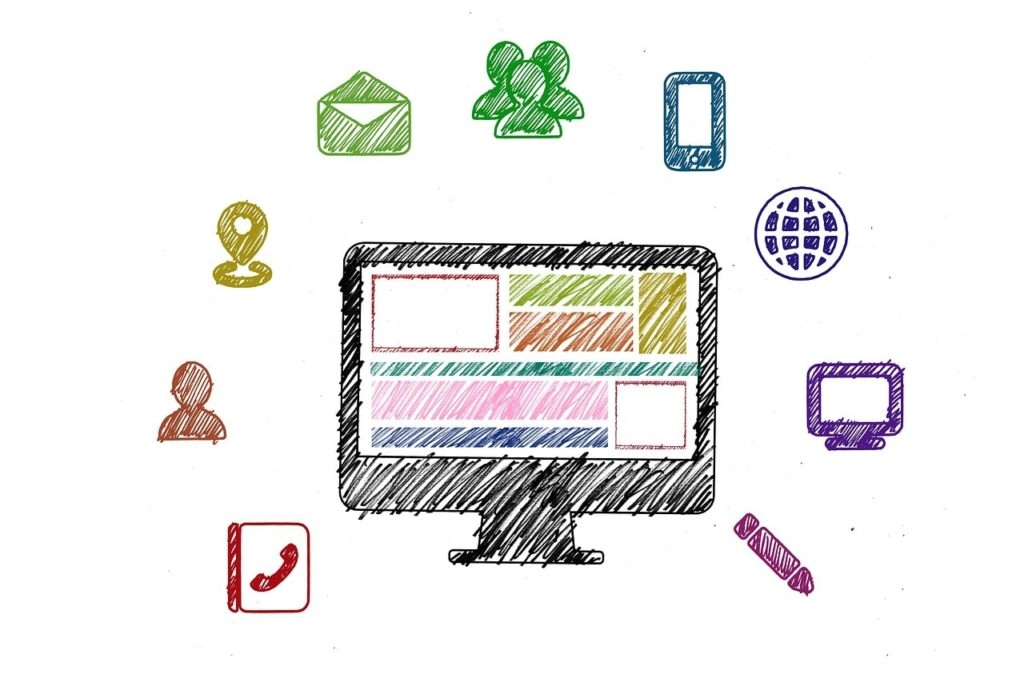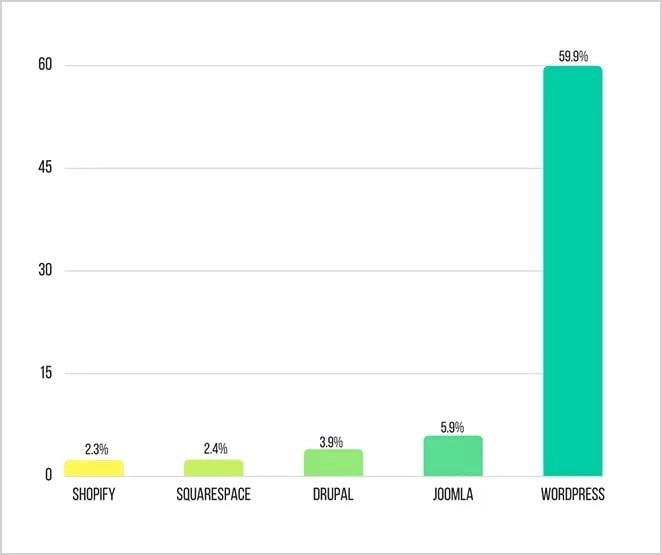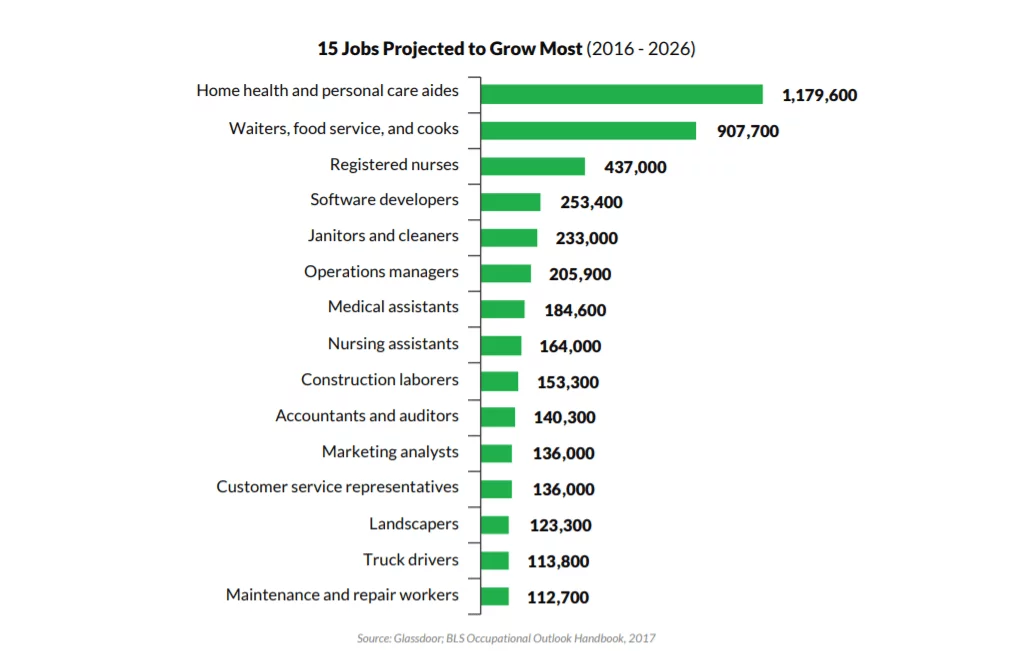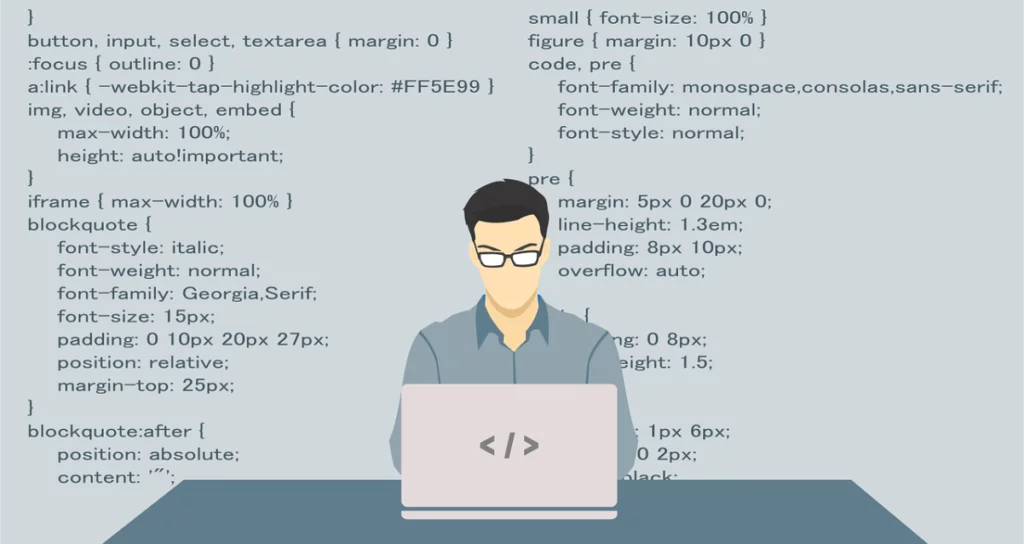
We see a lot of discussion around no-code and low-code platforms and their future. Over the last few years, the demand for software developers has increased dramatically and exceeded the supply of their service.
With that happening, people started working on solutions to bring equilibrium to these metaphorical scales. As a result, we now see multiple low-code and no-code platforms for folks with little to no background knowledge, as their names suggest.
Are they taking over the world? What’s going to happen to conventional software development? As these questions arise in the heads of many, we decided to make an overview of the low-code and no-code sector and see what experts say about the future of development in general.
But before contemplating over the perspectives, let’s make both terms more clear.
No-code ≠ Low-code
These two often come up in the same context and look almost the same. However, don’t let that mislead you – no-code and low-code development are two different concepts.
No-code development uses declarative programming, which, simply put, means you don’t get to tweak and fine-tune much. The process resembles building from blocks – you use premade solutions that answer the most common needs. You can work on such platforms with no coding knowledge or other professional skills – it’s simple, quick and convenient. In essence, you select the features for your soon-to-be website and let the algorithms do the rest.

No-code and traditional development correlate like creating a sculpture with Lego blocks and with sculpting clay. Both are perfectly acceptable, but your choice depends largely on what your goal is. The latter puts almost no limits on your creativity but surely requires skills of a much higher level and, most likely, significantly more time.
Low-code can be very similar at the start. You implement your dreams and designs in the form of a website prototype and, to make it a functioning product, let professional developers finish it up. The main difference with the previous type is that, with low-code, you don’t only select what the site will have – you also define how it will work.
Low-code solutions can bring you closer to the desired result. You have some room for your creativity in building a rough prototype while leaving the smoothing-out to code experts. Besides, you are free to do as much as you can and wish to do: low-code can lay anywhere between high-code and no-code.

No-code platforms to build websites
There are multiple more or less known solutions. W3Tech research compared the most widely used platforms, and here’s what they got:

WordPress is a universal soldier here. It works well for both devs and laypeople, thanks to the block editor and an understandable interface in general. While you can use it as a no-code platform, it’s incomparably more fruitful in the role of a low-code collaboration tool. It’s a great place to bring your ideas to life and polish them to perfection with the help of professionals afterwards.
Wix is another popular website building platform where you don’t have to be a developer to create a site. It’s a great option for a start since there’s almost no learning curve for the platform. It has its restrictions, though, but the usability saves the deal.
The virtue and the vice of low- and no-code
No-code
Pros
- Lower costs
- Easier editing
- Allows more inclusive involvement
- Less room for misinterpretation due to the Telephone game effect
Cons
- Lower quality (due to lack of security, scalability, and optimization, as well as UX issues)
- Limited creativity
- Requires a clear understanding of what you want
- The source code doesn’t belong to you
Low-code
Pros
- Closer collaboration of business and IT
- Developers concentrate on higher-level tasks
- Quicker prototyping
- Lower costs
Cons
- Beginner-level knowledge
- More costly compared to no-code
What does it tell us? Well, definitely not that one is better than the other. Whichever you choose, you can get the work done. Coding is a service, after all. Depending on how much you’re ready to pay, you may not have to touch a thing at all or do all the work yourself.
Aside from the price, we should take the economic viability into account. Would it be worth hiring the world’s #1 dev team to make a simple blog with basic info and contacts? Probably not – no-code platforms would suit you just fine in that case. Would the same be valid for an international bank where millions of people keep their money? Absolutely not.
The future of coding
Low-code and no-code are recent inventions, and people argue a lot about how they can change the future of development. For instance, Gartner predicts growth of 23% for low-code apps by 2022 – with that trend, what’s there to expect by 2030?
UPD 2022: The growth rate exceeded the anticipated numbers and, according to different estimates, reached 28% (base year – 2020).
With both options spreading over the digital space as quickly and inexorably, we start thinking: is that what development will look like in a few years? No skills needed, just no-code platforms for everything your heart desires?
GitHub’s CEO Chris Wanstrath shares a rather sensational-sounding thought: “The future of coding is no coding at all.”. And this opinion is not uncommon. It adds a bit of fuel to the fire of the discussion. Does it mean we won’t need developers anymore?

Well, what this quote might mean is that no-code platforms will become a significant part of software development in a few years. But them replacing human work seems impossible.
One can perform a thought experiment and imagine humankind spending several [dozens of] lifetimes adding new functionality to a platform, enriching it with more and more customization features while keeping it humanly readable. Already complicated enough, right? Now, take into account the neverending progress – we would have to augment the functionality of this platform on and on.
That would result in a humongous system, navigating which would be insanely difficult. And it would keep growing (by the way, who would have to work on adding new features? Right, developers), thus becoming literally impossible to use.

So, on a scale from high-code through low-code to no-code scale, neither of the points is unnecessary, excessive or soon-to die off. All of them will remain to fit different needs because no-code will never allow the same level of customization as custom development. It probably won’t even come close.
Will software developers lose their jobs?
According to the Glassdoor report, the US will need over 250,000 new dev roles by 2026 (as compared with 2016. New roles, not just job openings – that sounds like a huge change on the market. Does that change bring us good or bad outcomes?

We can interpret this data from at least two standpoints, and they don’t exclude one another. One is that the industry of software development is surely not dying. It does very much the opposite – it’s prospering and doing it at an impressive rate. Therefore, software developers have nothing to fear (if they ever did).
Another take tells us that these new roles don’t just appear on a previously blank spot. Similar to what the law of conservation of energy states, things come to being only when there’s something to make them from. These new jobs may be the result of a system being reworked and rearranged: the jobs we know now will grow obsolete, and these 250,000 will take their place. As a result, developers will most likely just slightly change their job duties, not become extinct as a professional community.
Then, again, IT is not a closed system. New positions for developers may also arise on the basis of jobs from other sectors. So, this view of the matter doesn’t imply significant job losses in development either.

At least for the nearest future – for the 2020s, software developers will stay quite busy. Moreover, Forbes believes they won’t ever be replaced by no-code platforms – and we agree with this point of view. Many of the IT engineers will be working on the low-code and no-code solutions, and that by no means implies they’ll be building a fire around themselves.
Code or no code – How to choose?
There’s no one-size-fits-all solution for a problem like that. Since you know your situation better than anyone else, you’re the one to say which option suits you more. However, we recommend paying attention to the following factors:
- Plan – It may be enough to start with a simple no-code site and then, if the situation requires, build a more complex product. Or you may delegate the work to developers to get a top-notch product right away.
- Budget – Define what you can afford and what would be economically viable. Try to keep in mind the long-term costs as well.
- Time – If you’re rather tight on deadlines, it could be more favorable to launch an MVP built on a no-code platform. Alternatively, you can choose conversion services like our Figma2WP to jump from a design to a fully functioning website in no time.
- Skills and capabilities – No-code development, however simple it sounds, still requires some training. On the other hand, editing and fixing its products will be much easier for non-tech people.
If you decide on low-code or high-code options, you’ll still need to involve professional developers in your project. You can search Top 30 Custom Software Development Companies – the rating allows filtering and sorting the results and provides reviews for the companies on the list. And you can always choose us – we’d be happy to help you build an awesome WordPress product!
Bottom line
The tendency of automating various processes is not new. And what it changed in the world is that one type of job gets substituted with another, and many types transform. That’s most likely what will happen to software development as well.
It seems like no-code and low-code platforms will grow and prosper to provide even more cool opportunities for people from any field of activity.













